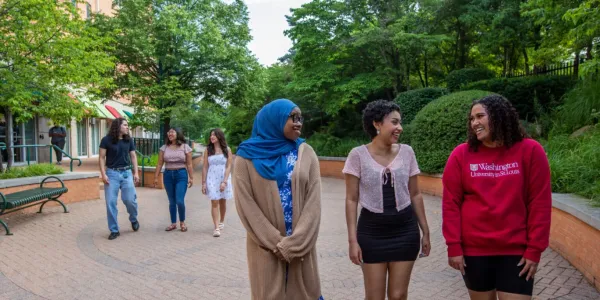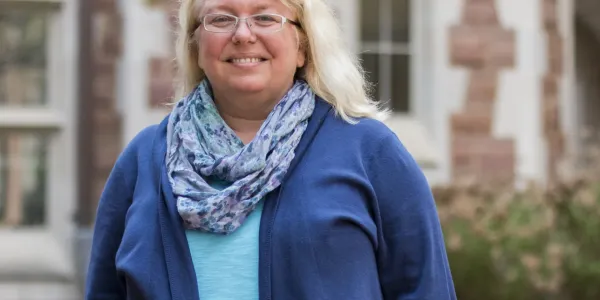Last month, Arts & Sciences researchers received awards from NASA, the National Institutes of Health, Templeton Religion Trust, and others.
Physicists led by Brian Rauch, research associate professor of physics, are developing a new experiment envisioned for the International Space Station as part of NASA’s Astrophysics Pioneers Program. The Trans-Iron Galactic Element Recorder for the International Space Station (TIGERISS) will be designed to measure the abundances of ultra-heavy galactic cosmic rays. Pioneers Program missions have a total cost cap of $20 million. Read more from the Source.
Joseph Jez, the Spencer T. Olin Professor in Biology, along with collaborators at Children’s Hospital of Philadelphia and George Washington University, won a five-year, $4 million award from the National Institutes of Health. The grant supports the team’s work on structure-based microbially targeted prodrugs.
Pascal Boyer, the Henry Luce Professor of Collective and Individual Memory, and his collaborators at the University of Oxford and California State University were awarded a $2 million grant by the Templeton Religion Trust for research examining the success of religions within a psychological context. Read more about the project in the Ampersand.
Arpita Bose, associate professor of biology, is a co-investigator on a four-year, $1.5 million technology development grant from the National Institutes of Health with Mark Meacham, associate professor of mechanical engineering and materials science in the McKelvey School of Engineering. The grant supports the collaborators’ efforts to develop an acoustic microfluidic platform to separate cells and particles and builds on work previously funded by the U.S. Department of Defense. Read more from the McKelvey School of Engineering.
Alexander Hatoum, research assistant professor of psychological and brain sciences, won a five-year, $897,120 award from the National Institutes of Health’s National Institute on Alcohol Abuse and Alcoholism for a project titled “Mass Multivariate Derivation and Validation of AUD Biotypes using Developmental Imaging and Genomic Approaches.”
Rita Parai, assistant professor in the Department of Earth and Planetary Sciences, won a $450,000 grant from the U.S. Department of Energy’s National Nuclear Security Administration. The award supports Parai’s project titled “Seeing Through the Fission Phase 2: Multi-Modal Analyses of Actinides and Noble Gas Isotopes in Geological Samples.”
Todd Braver, professor of psychological and brain sciences, received a $442,135 award from the National Institutes of Health to study aging effects on the neural coding of proactive and reactive cognitive control.
Philip Skemer, professor of Earth and planetary sciences, won a $321,515 grant from the National Science Foundation to support collaborative research titled “Integrating Seismic Anisotropy, Mantle Flow, and Rock Deformation in Subduction Zone Settings.”
Patrick Hill, associate professor of psychological and brain sciences, received a three-year, $237,970 grant from Velux Stiftung, a science-funding foundation based in Zurich, Switzerland, for research on future time perspective as a motivator for healthy aging practices.
Calvin Lai, assistant professor of psychological and brain sciences, has been awarded a $230,000 grant from the Templeton World Charity Foundation for his project titled “Exploring the Power of Immersion and Emotion for Intervention Design.” With an interdisciplinary team of researchers, Lai will examine the long-term efficacy of a new intervention program that will use empathy to promote social justice. Read more from the Ampersand.
Ilaria Patania, postdoctoral research associate in the Department of Anthropology, was awarded a $25,000 research grant from The Leakey Foundation for a project investigating the earliest migrations over the Mediterranean Sea.
Brett Wick, professor of mathematics and statistics, won a $13,500 grant from the National Science Foundation to support a conference on recent advances and past accomplishments in harmonic analysis.
Jake Funkhouser, graduate student in the Department of Anthropology, received a $2,000 ABS Student Research Grant from the Animal Behavior Society. The award supports Funkhouser’s project on social roles and cultural learning in chimpanzee societies.
Did we miss something? Contact Shawn Ballard, communications specialist in Arts & Sciences.





